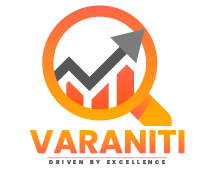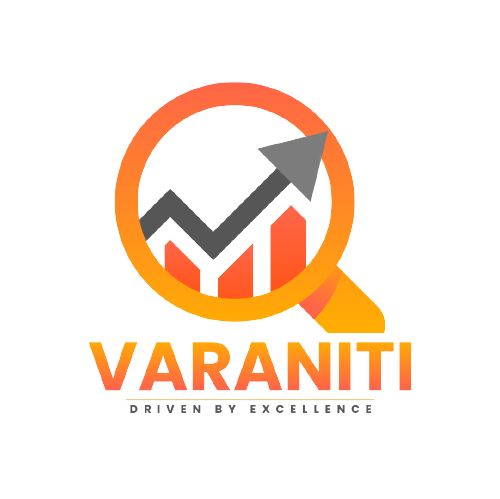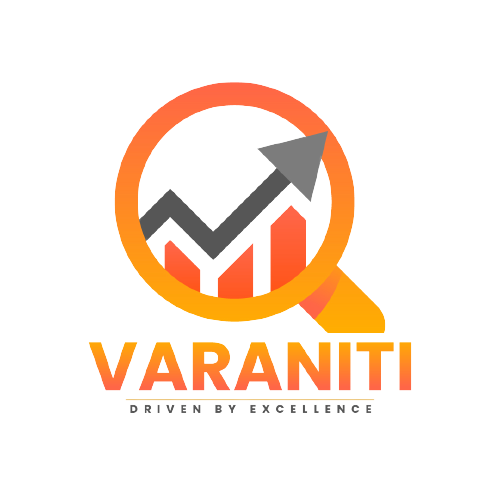GST eInvoice
GST In order to transition from outdated paper-based processes to the digital age, eInvoice has been implemented in India. Business operations can be accelerated and efficiency increased with the use of e-invoicing. By removing the need for duplicate data transmission from one system to another, eInvoicing will assist most organizations in reducing their compliance burden. With eInvoicing, many other systems, including those for GST returns, input tax credit reconciliation, eWay bills, and GST refunds, will auto-populate with the invoice information given to GSTN for generating Invoice Reference Number (IRN). Therefore, GST eInvoicing will considerably increase corporate efficiency and lessen the burden of compliance.
eInvoicing Implementation Date
In June 2019, the 35th GST Council Meeting received a presentation on the eInvoicing implementation proposal. Beginning in January 2020, a voluntary pilot project for online B2B e-invoice production will be launched by the GST Council.
|
Timeline |
Turnover |
Supply Type |
Implementation |
|
January, 2021 |
GST registered entities having an aggregate turnover of more than INR 100 crores. |
B2B |
Voluntary |
|
April, 2021 |
GST registered entities having an aggregate turnover of more than INR 50 crores. |
B2B |
Voluntary |
|
April, 2021 onwards |
GST registered entities having an aggregate turnover of more than INR 20 crores. |
B2B |
Mandatory |
Through Notification No. 13/2020-Central Tax dated March 21, 2020, the government has exempted a specific group of people from the implementation of eInvoicing. The following entities are exempt from the schedule above for implementation, according to the notification:
- An Insurer, Banking Company or Financial Institution including NBFC
- Goods Transport Agency
- Passenger Transport Service
- Admission to exhibition of Cinematograph Films in Multiplex Screens
Advantages of GST eInvoice
Since there are now no established standards for invoicing, GST eInvoicing will totally disrupt the corporate process. Invoicing would become standardized throughout the entire GST eco-system with the deployment of eInvoicing. As a result, there is no requirement for data transfer or re-entry when reading an eInvoice created by one piece of software by another. Last but not least, eInvoicing will do away with the monthly preparation of invoices and streamline the flow of input tax credits.
Key Concepts of eInvoicing
The following are some of the key concepts with respect to GST eInvoicing:
Generating eInvoice
GST eInvoice is not a government portal-generated invoice because such a portal may become a commercial bottleneck. By using the GST eInvoicing method, the taxpayer will assign each invoice a special Invoice Reference Number (IRN) and note this on the given invoice.
Invoice Reference Number (IRN)
When an eInvoice is successfully uploaded to the GST Invoice Registration Portal, an individual number known as the "Invoice Reference Number" is given for each invoice. The supplier must provide the invoice reference number on the invoice to abide by eInvoicing rules.
eInvoice Format
The GSTN hasn't given any guidelines about the eInvoice format. The invoice that has been created and printed as of right now will likewise not alter. A QR code and an invoice reference number will be generated as part of eInvoicing, which involves sending some data from the GST invoice electronically to the GSTN Invoice Registration Portal (IRP). The supplier's generated invoice needs to have the QR code written on it. As a result, suppliers can keep using their billing software to generate invoices with a look and feel that meets their needs and complies with GST invoicing regulations.The GST Invoice Registration Portal's production of the invoice reference number and the printing of the eInvoice QR code on the invoice will be the only changes.
Invoice Registration Portal (IRP)
The platform issuing the invoice reference number is called the Invoice Registration Portal (IRP) or eInvoice Registrar. The first IRP has been suggested as being NIC. More IRPs will be introduced as the number of taxpayers using eInvoicing grows in order to improve availability, performance, and establish a distributed architecture.
Generating GST eInvoice
The process of generation of a GST eInvoice can be divided into four phases:
Generation of Invoice
The seller will create an invoice in his or her billing, accounting, or ERP system in the first phase. The produced invoice must adhere to the eInvoice standards that the GSTN has issued and must include a number of essential specifications. After that, the invoice created with the program should be sent in JSON format to the invoice registration portal.
Uploading JSON to Invoice Registration Portal
It will be necessary for the sellers' accounting software to send the invoice in JSON format to the invoice registration portal via APIs, GSP/ASP, or an offline application. Through APIs, the JSON can be uploaded straight from accounting software.
Processing of Data by IRP
The IRP will verify the accuracy of the JSON invoice it has received and make sure it hasn't been copied by another invoice from the same provider. After the JSON invoice has been validated, the IRP will add its digital signature, assign an IRN (Invoice Reference Number), and generate a QR code for the JSON file. This digitally signed JSON with IRN is given back to the seller and will serve as both the seller's and the buyer's legitimate GST eInvoice.
Transmission to GSTN & eWay Bill Platform
To lessen the burden of compliance on taxpayers, IRPs will also communicate the signed eInvoice data with the GSTN system and eWay Bill site.
Invoice Reference Number (IRN)
Each invoice that a seller uploads to the invoice registration portal and has confirmed will be given an IRN, or invoice reference number. Regardless of the taxpayer, financial year, or kind of document, IRN is a 64-character long, unique number in the GST system.
When a JSON invoice file is uploaded to the Invoice Registration Portal, an IRN will be generated. The GSTIN of the supplier, the document type, the document number, and the year of the invoice will all be used to construct the IRN. Document kinds include INV (invoice), CRN (credit note), and DBN (debit note).
eInvoice QR Code
The IRP will generate a QR code with the particular IRN as well as other invoice data so that it can be easily checked online and digitally sign a JSON invoice given by the seller. The buyer or any tax offer can use an app to scan this QR code to verify the legitimacy of the invoice that was provided. This data will be encoded in the eInvoice QR code:
- GSTIN of supplier
- GSTIN of recipient
- Invoice number as given by supplier
- Invoice date
- Invoice value
- Number of line items
- HSN code of main item (Item with highest value)
- Unique Invoice Reference Number (IRN)
GST eInvoice Format
The GST eInvoice format will resemble the current GST invoice format. The GSTN has stated that the vendor is not obliged to write an IRN (64 characters) on a piece of paper. However, the Invoice Registration Portal's QR code will contain the IRN as well. The invoice's and the IRN's information will be included in the QR code. Therefore, it is preferable to create a digitally signed QR code as a response, which will serve as confirmation of the invoice's registration, and print it on the invoices that a company issues.
Time Limit for Generating eInvoice
The Government will announce the window of time during which an eInvoice can be generated. The validity of an invoice depends on its registration with the Invoice Registration Portal and the creation of a QR code. Therefore, eInvoicing must be finished prior to the movement of commodities, delivery of goods or services, or submission of GST returns.
Cancellation of eInvoice
Once generated, an eInvoice can be totally canceled on the Invoice Registration Portal within 24 hours. An eInvoice cannot be cancelled on the Invoice Registration Portal after 24 hours; this must be done on the GST Portal prior to filing a GST return.
The same invoice number cannot be used to produce another GST eInvoice after a cancellation.
Amendment of eInvoice
On the GST Portal, the eInvoice can be modified. Only the GST Portal can be used to make any changes to the eInvoice created on the Invoice Registration Portal. A modified invoice will be rejected by IRP if it is sent to them again as a JSON file since the IRN will be duplicate.
Faq's
Is QR code required mandatorily for e-invoicing?
The QR code is mandatorily required from the 1st October 2020 for the taxpayers with their aggregate turnover exceeding Rs.500 crore in 2017-18 to 2019-20. By 1st January the E-invoicing is now mandatory for the businesses that exceed Rs.100 crore limit in 2017-18 to 2019-20. Further, it was extended for businesses that have a total turnover of more than Rs.50 crore from the 1st of April.
Is bulk loading of invoices possible?
Yes, details of invoices can be entered in bulk in an excel based bulk converter tool, available on the e-invoice portal.
Based on recent updates effective from October 1, 2022, companies having a turnover of more than 10 crores would be required to use e-invoicing.
An e-Invoice cannot be partially canceled, it has to be canceled fully. Once canceled, it will need to be reported to the IRN within 24 hours. Cancellation done after 24 hours cannot be done on the IRN and needs to be manually canceled on the GST portal before the returns are filed.
In which case e-invoice is mandatory?
Based on recent updates effective from October 1, 2022, companies having a turnover of more than 10 crores would be required to use e-invoicing.
Who is eligible for E-invoice?
According to the guidelines prescribed by the GSTN, registered persons with a yearly turnover exceeding Rs.10 crores in any prior financial year, starting with 2017–18, are required to use e-invoicing system for B2B and B2C communications.














